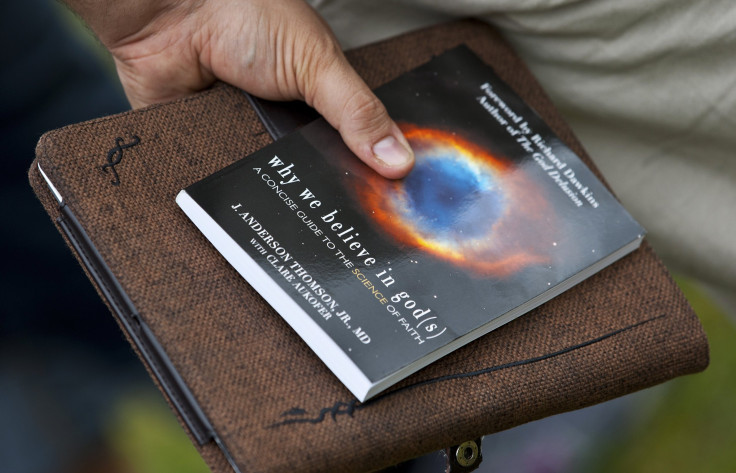Why Do More Intelligent People Tend To Be Atheist?

Historical evidence collected over time and data gathered through recent surveys both point to a curious fact: intelligent people tend to be atheists. And since this is not a new phenomenon, social scientists have long tried to explain the link between intelligence and disbelief in god.
A research paper, published online Tuesday in the journal Evolutionary Psychological Science, attempts to explain the link. In the paper, Edward Dutton of Ulster Institute for Social Research in the United Kingdom and Dimitri Van der Linden of the Rotterdam University in the Netherlands suggest: “The link between intelligence and religion can be explained if religion is considered an instinct, and intelligence the ability to rise above one’s instincts.”
Read: Pope Says Atheism Is Better Than Being An Immoral Christian
The two researchers proposed a new model called the Intelligence-Mismatch Association Model which tried to explain why more intelligent people tended toward atheism since the time of Greeks and Romans. To arrive at their model, the paper’s authors first considered three existing models that sought to provide a reason for the negative association between being smart and theism. They rejected two of the models — Irrationality of Religion Model and Cultural Mediation Hypothesis — as being problematic and suggested a substantial revision of the third.
Called the Savanna-IQ Interaction Hypothesis, this third model was the brainchild of evolutionary psychologist Satoshi Kanazawa and was based on the premise that “human behavior will always be somehow anchored in the environment in which their ancestors developed,” according to a statement on the website of Springer, publisher of the journal.

Calling religion an instinct and intelligence the ability to rise above it, the model proposed by Dutton and van der Linden says “an inclination toward the non-instinctive will thus be an aspect of intelligence because it will help us to solve problems. Thus, intelligence will involve being attracted to evolutionary mismatch, to that which we would not be instinctively evolved to be attracted to. It is this, we argue, that is behind the negative religion-intelligence nexus.”
In the statement, Dutton explained: “If religion is an evolved domain then it is an instinct, and intelligence – in rationally solving problems – can be understood as involving overcoming instinct and being intellectually curious and thus open to non-instinctive possibilities.”
Read: Author Claims ‘Atheism Will Replace Religion’ By 2041
While working on Intelligence-Mismatch Association Model, researchers also examined the association between instinct and stress.
“If religion is indeed an evolved domain – an instinct – then it will become heightened at times of stress when people are inclined to act instinctively, and there is clear evidence for this,” says Dutton. “It also means that intelligence allows us to able to pause and reason through the situation and the possible consequences of our actions.”
This ability to pause and reason is what allows for better problem solving, one of the markers of intelligence.
“This is important because, in a changing ecology, the ability to solve problems will become associated with rising above our instincts, rendering us attracted to evolutionary mismatches,” van der Linden said.
© Copyright IBTimes 2024. All rights reserved.





















